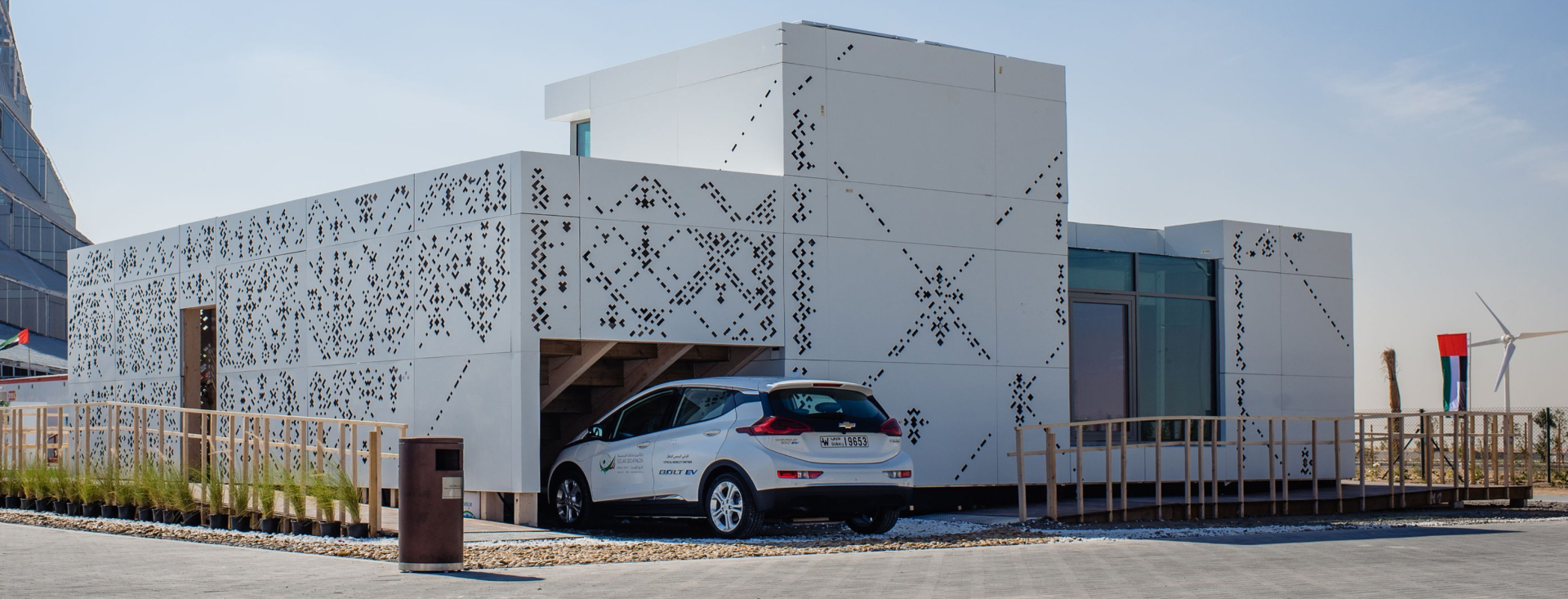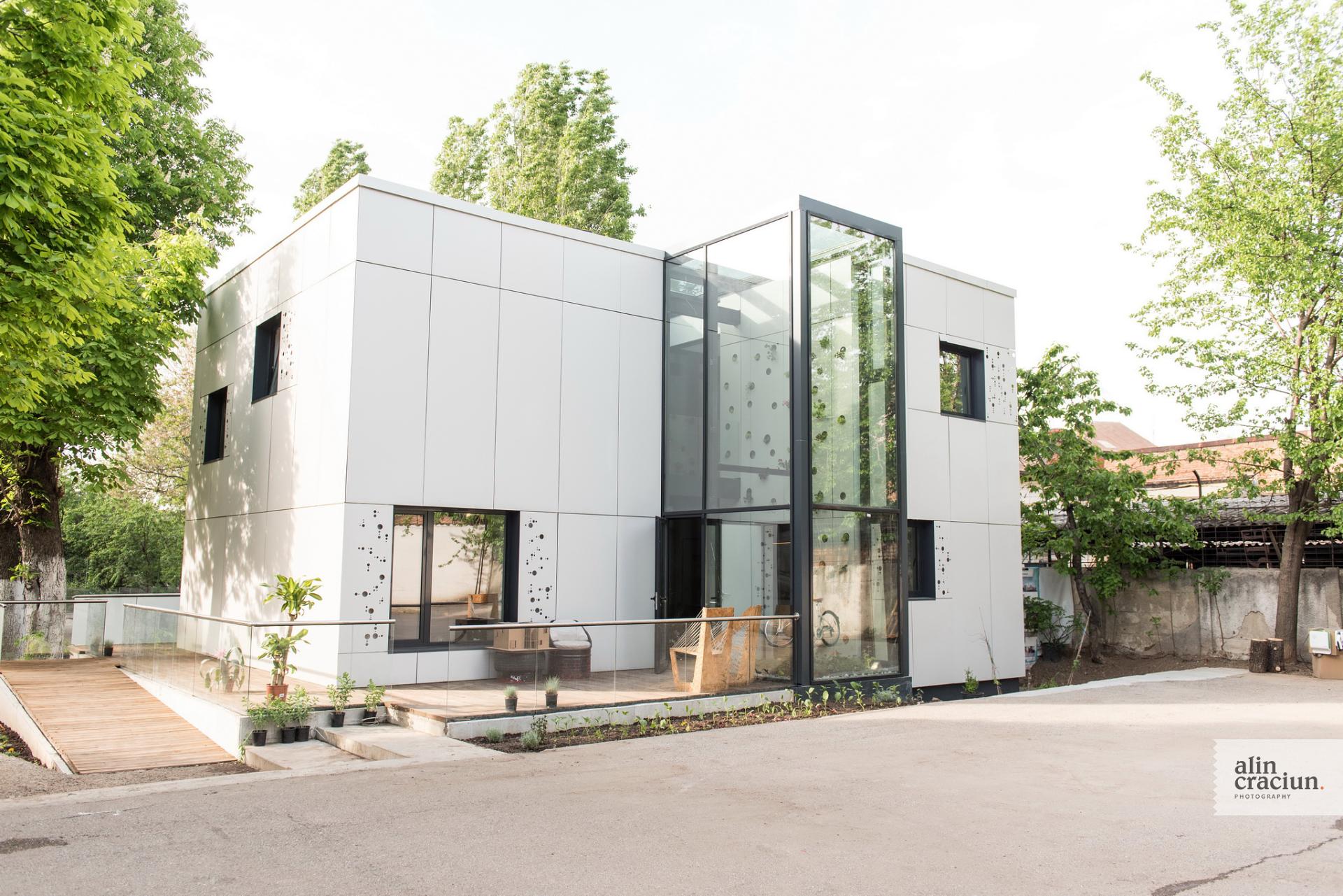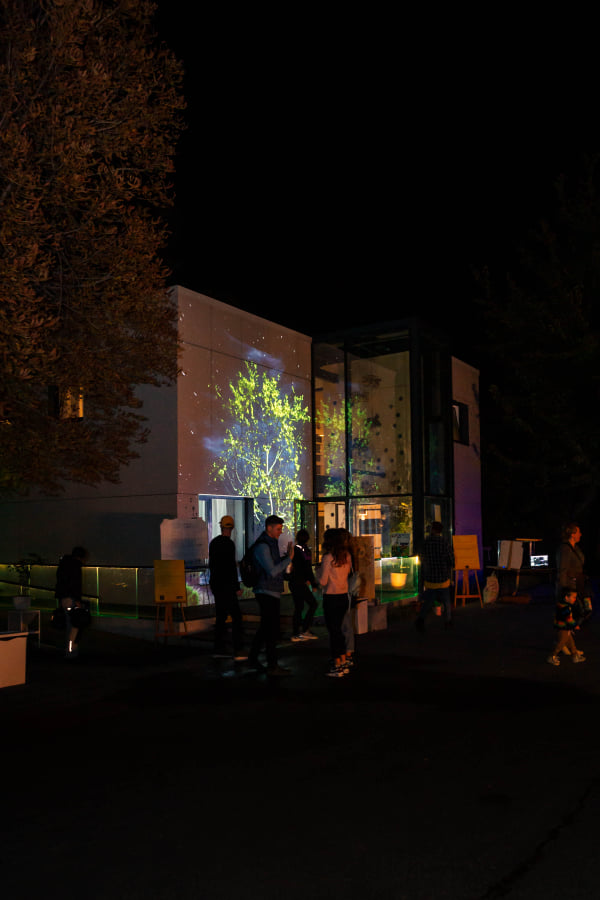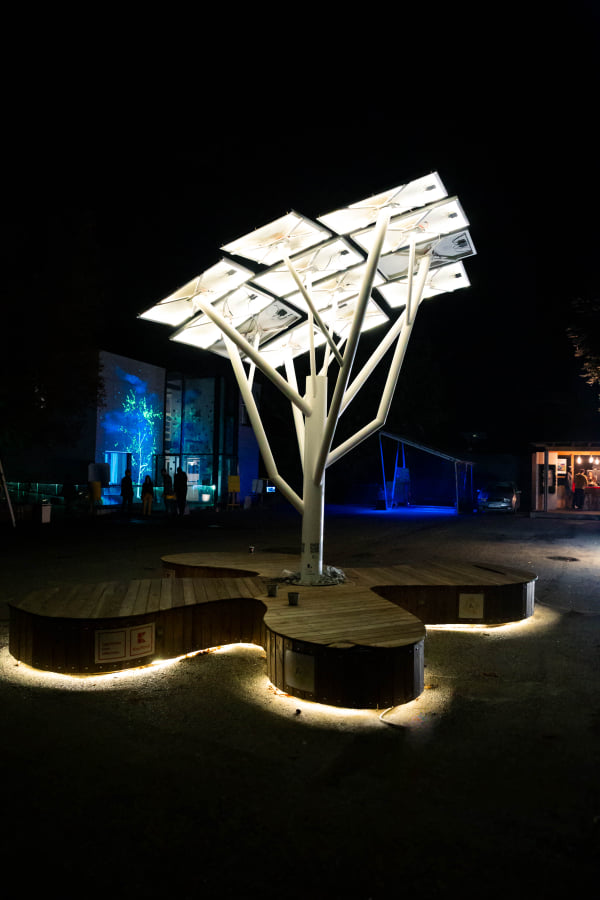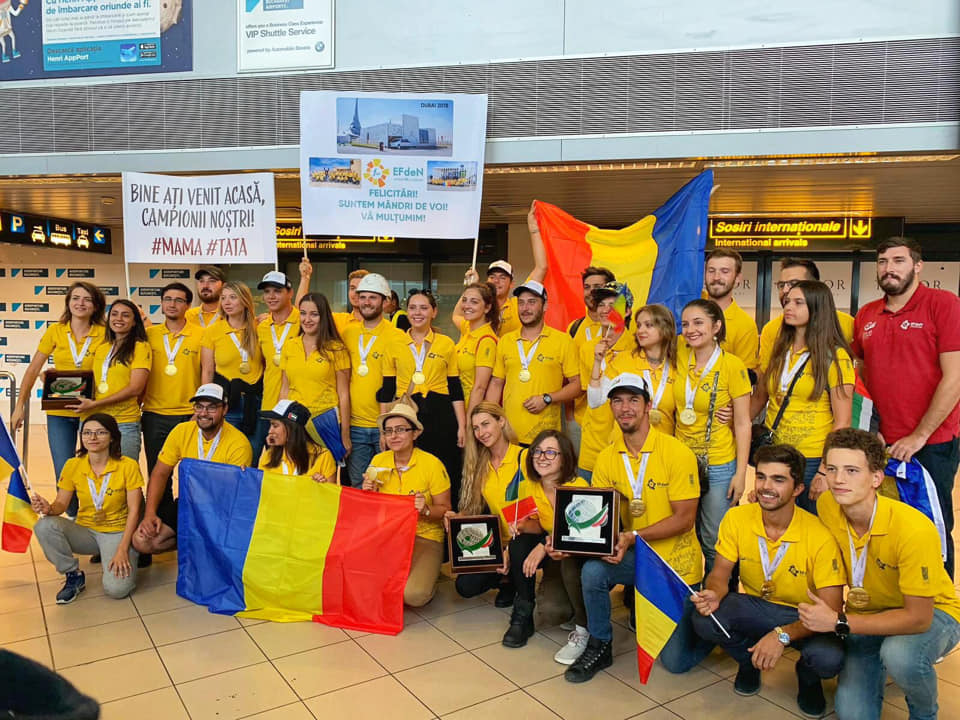EFdeN
Basic information
Project Title
Full project title
Category
Project Description
Since 2013 EFdeN has been helping students and young professionals find a sense of direction while providing an environment to apply their creative energy through a trial and error process. Facilitated by the Solar Decathlon competitions, we have attempted to be at the forefront of everything related to sustainability, from law & policymaking to education and development of our cities. Briefly: 10+ projects implemented with 600+ volunteers, 50+ awards, 300+ partner companies involved.
Project Region
EU Programme or fund
Description of the project
Summary
The EFdeN name comes from f[N] - where N is Nature. Nature is at the core of everything we do as we try our best to protect it and bring it closer to people so that they are much more considerate towards it. The story of EFdeN is unique. Not because we say, but because so does the academic body, hundreds of partners, the authorities, the business environment, mass media and the public at large.
What started as a singular project 8 years ago, with the occasion of the participation in the Solar Decathlon Europe 2014 competition, is now the most important sustainability NGO in Romania and the only one in the country to develop solar homes for educational and research purposes, along with sustainable products and educational modules for students, specialists and the general public. At the end of 2016, EFdeN became a finalist in the Solar Decathlon Middle East 2018 competition, among other 17 projects worldwide. And so, it began a crazy race against the clock to design, build (twice: in Romania and Dubai), test, transport, exhibit and, most importantly, fund an innovative solar house entirely developed by students, in a project that costs 1.4 million euros.
After these two years, we returned to Romania with 4 awards and reassembled our prototype “EFdeN Signature”. During this period, more than 100 students grasped information about sustainable development while having hands-on experience with a green rating certification system. The prototype will be certified with the LEED Platinum Certification this year, being one of the earliest of this kind in Europe; all this grace to the students’ involvement. Moreover, the students developed practical skills while working on the construction site.
Key objectives for sustainability
Health and wellbeing - To establish the First Research Centre for Comfort Conditions in Romania. In 2015, after the completion of our 2014 SDE prototype (EFdeN 4C) reconstruction, we managed to establish the first research centre for comfort conditions in Romania. EFdeN 4C is a place where students and academic personnel can test and monitor comfort parameters. Besides providing a viable example of sustainable housing, our prototype serves as an open lab for system testing and optimisation. As a secondary outcome, we developed a house comfort conditions guide for the general public.
Clean and accessible energy - To make prosumers a reality in Romania in legal terms: Our prototypes use only clean energy, from alternative and/or renewable energy sources. Through the power of direct example, they help increase demand on the Romanian market and, implicitly, supply and innovation for technology that uses clean energy.
With our 2014 SDE prototype being reconstructed in Romania we were able to produce more electrical energy than we consume. At that time, no legal terms were allowing us to feed the local grid with surplus electricity. Considering this, we started the EnergiaTa (Your Energy) project. The outcome of the project was a law that made prosumers a reality in Romania. Now, people can feed the grid with electricity while being compensated for it, making the overall investment in photovoltaic panels for green electricity more affordable.
Responsible consumption and production: One of the objectives of the Solar Decathlon Competitions is for participants to follow the life cycle of construction and products used in this process. Based on this exercise, we have demonstrated how the carbon footprint can be reduced by responsible choices, such as high-performant insulation, airtightness and efficient equipment. For example, we have achieved a score of -20 in a preliminary HERS Index for EFdeN Signature, the prototype presented in Solar Decathlon Middle East, Dubai.&
Key objectives for aesthetics and quality
Integrating greenery into the buildings
We emphasise green areas for their obvious representative value and we seek to integrate them into our house prototypes. As our prototypes use a simple and efficient geometry, vegetation areas are the only ones to bring life to them. For example, in EFdeN Signature the green wall breaks the rhythm of the equally divided 3-segment curtain wall, while the ground planted area soothes the rigidity of the terrace decking. Their organic shapes mixed with the clean lines of the façade and glazed surfaces, giving the illusion of nature making its way into the house. At the same time, by creating a greenhouse inside EFdeN 4C and other green spaces around it such as the green façade, the volume is penetrated by vegetal features.
Creating an oasis-like atmosphere inside the living spaces
Light has a vital role. For EFdeN Signature, the glazing of the house is designed so that the gentle north light enters the house entirely, while the more intense east light is refined by two layers: the perforated façade panels and the vegetation layer. The tower windows insert a clearer, unfiltered light into the house, which creates a skylight effect. Artificial light is another means we used to border different areas in the house - the position of the luminaires communicates harmoniously with the ceiling’s silhouette. For EFdeN 4C we used the greenhouse as a means to bring diffuse, oasis-like light inside the house from the south façade.
Preserving the local characteristics
To preserve the local characteristics of the urban form, we are working upon the most particular morphological elements observed on-site to determine the prime concept of our projects. An example would be the reinterpreted mashrabiya pattern and the wind towers used for EFdeN Signature, for Dubai.
Key objectives for inclusion
Gender Equality
At this time, our Management & Board Unit is composed of 5 women and 4 men and there are 46 female members and 22 male members occupying all sorts of positions.
Equality & Diversity in recruiting
In the recruitment process of our volunteers, we want to eliminate the possibility of unconscious biases in the selection process. To achieve this, we have established a blind screening method in which we examine CV and application forms without looking at the name, gender, age, ethnicity of the applicant. We are offering everyone an equal chance to be part of our team. Furthermore, each interview is accompanied by a debriefing session with our HR team and managers to assure objectivity, fairness and transparency.
Awareness & Education on the importance of D&I
As a team, we are committed to becoming aware of our unconscious biases and prejudice and challenging ourselves to change our automatic patterns of thinking. Through partnerships with consultancy companies and specialists in learning and development, we have provided our team members with training on D&I and unconscious bias training. As a result, team members have become more mindful of the impact they may have on others.
Ensuring all voices are heard
It is important that each team member feels comfortable in sharing their thoughts and ideas. Therefore, an important role during all our team meetings is the role of the meeting facilitator. The meeting facilitator’s job is to note if a person's comment has been ignored or overpassed and to make sure that everyone is included in the conversation and each opinion is valued. By doing this, team meetings have become more productive because members are being heard and they feel that they are a key part of the decision process.
We value and treasure each unique educational and professional background of our team members, thus, creating an environment in which each member makes a valuable contribution to our project goals.
Results in relation to category
Quality education - Preparing students for the work field: EFdeN is a multidisciplinary NGO that brings together market players and universities. Thus, the volunteering students take part in a practical experience, actively participating in all the phases of a project, from the concept phase to implementation. Following the experience of an SD, many of the participants formed collaboration teams in the field of applying the principles of sustainable development in the construction sector, helping, in their professional path, to train other collaborators. More than 500 students took part in this complimentary education project being employed by top companies or being able to start a business on their own at the end of their road in EFdeN.
Providing students up to date learning materials
As students are not usually prepared for the implementation of a project in real life, one of our objectives is to provide them with the tools needed to succeed.
Approximately 15 students that have worked on designing the EFdeN Signature have completed top BIM courses available in our country and 15 have completed RoGBC courses on sustainable building design.
We have developed an induction system for new members that provides them with the basic information needed to function as a team. Moreover, we organise monthly workshops on different topics from fundraising to construction tools usage.
To have a safe construction site, every member of our team is specifically trained regarding health and safety procedures and some have the opportunity to participate in specific site work courses.
Making sustainability easy to understand: We want to emphasize that sustainability is relevant, important and achievable by anyone. During the past 4 years, our prototypes have been open weekly to public visits, we have organised numerous workshops for different target groups and we have promoted sustainable habits on our social media platforms in a way that is understandable by everybody.
How Citizens benefit
Promoting the benefits of being a prosumer to the general public
In order to make the photovoltaic panel instalment a much clearer process for the general public, in terms of time, money and redundant requirements, we developed the first Prosumer’s Guide in 2017. Then, after we solved the problem, a new guide was necessary with a brand new purpose: to overcome the struggles firstly encountered by those willing to take this step. Also, it explains everything about solar energy, the technical equipment needed, myths and advice to generate awareness about this new market sector, rendering it as easy as possible for anyone to become a prosumer.
Making Solar Decathlon a common objective for the general public Romania
We started a national campaign to financially support the participation of our team in the final of Solar Decathlon Middle east 2018. The main idea was to centre the campaign around the members of our team and portray them as superheroes. Through an app and using a gamification system, people would donate money to make sure their heroes get to Dubai. We were supported by over 50 national influencers and 12 out of 33 heroes were unlocked in the first few hours. This way our dream become a national goal.
Innovative character
Promoting sustainability and efficiency through automated house prototypes
For our prototypes, we integrated a voice assistant (VA) that facilitates the connection of the house with the user by a UI (user interface). By asking the VA simple commands, the consumer will get all the info about the house’s environment and will use all the integrated devices in the house. This makes the house a personal assistant of the user, helping him with all his needs. External parameters can also be monitored and processed by the VA, like wind speed, level of brightness, external temperature, making the user even more connected with the environment. This approach has been presented to the wide public in Romania serving as a model to showcase the fact that technology can be used by everybody.
Regarding education, the main innovative features of our project were:
Integrating open curriculum in the Romanian Educational System
In Romania, in a traditional institution, you barely have the opportunity to choose your subjects. To change that, EFdeN became a place where students from over four major Universities work together in an interdisciplinary environment. They can choose their projects and tasks, having the freedom to experiment and develop themselves in new areas.
Preparing and supporting entrepreneurs
EFdeN is an NGO that financially supports itself through the fundraising efforts of students. This model is based on the idea that students have to develop fundraising skills and apply them in real-life scenarios.
EFdeN supports the launch of its members in entrepreneurship with feedback, public speaking lessons and valuable & proven experience in sustainability projects. For example, they participate in start-up competitions, such as ClimateLaunchpad. So far, our members have participated in 5 editions with 5 different startup ideas, winning one edition.

